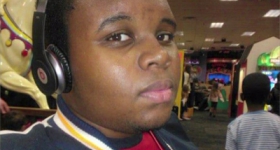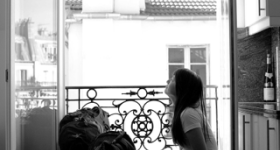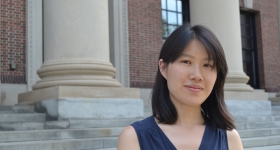My uncle and I are sitting across from one another inside a crowded and noisy restaurant in Bangkok, Thailand — tables filled with hungry, happy people, hovering over steaming pots of rich Thai chicken broth. Many are waiting to devour freshly cooked greens, noodles and giant prawns.
My hands fidget nervously. I haven’t seen my uncle in 15 years, since I stopped spending some summers here. I have anticipated this moment for many months, rehearsing in my mind the words that I would say to him. But here now, my mind is blank. I can’t even think about food. My mouth feels dry. Throat tight. All I can think about is my uncle, who looks so much like my mother when she was alive.
“How is your family?” he asks politely.
Suddenly I’m reminded of my father and older sister, who feel so distant now, as if from another life. They questioned my decision to journey to Thailand to meet with my mother’s family. Why dredge up the past?
“They’re fine,” I reply.
“I want to show you something,” my uncle says, a bit of gray around his temples. I see more clearly the lines around his eyes from years of squinting at a computer. “Shall we take a walk?”
After walking up a tall, narrow staircase to the third floor of his house, I follow my uncle into a dark spare room. One corner is covered with dusty, old, tattered boxes that once housed a fan, rice cooker and some other appliances. Nearby sits an old, dusty piano.
On the other side of the room is a black-and-white snapshot of my mother. Her picture is surrounded by a semicircle of golden Buddha statues. She looks so radiant, so young. It is hard for me to believe that she died at 31. It had been a long time since I have taken a long look at my mother. I have actually forgotten the contours of her wide face. My father had packed the pictures of my mother in neat boxes under our staircase, but here she is, out in the open.
My uncle reaches for a tall, thin piece of incense and drops to his knees. I feel clumsy and awkward standing over him. Before long, a thin stream of smoke fills the room with a sweet, musky scent.
Suddenly, I am at my uncle’s side in front of the altar, slowly sinking to my knees. I feel the painful memories of the past drift away with the smoke from the incense. As we pray together, I am reminded of the Buddhist tenet of forgiveness and letting go of the past.
I was 20 when I realized my mother had taken her own life. For the past 14 years, I had been told that my mother died from an accident. The child accepts the explanation given to her. But the adult eventually begins to question what she was told.
I longed to know more about my mother as I grew older, and I sought out her closest friends, “aunties” I grew up with. I’d watch their eyes cloud at the mention of my mother and a dark picture began to emerge.
They confided in me about her high level of stress from raising a family, the unrelenting work in a new country, the isolation from friends and family in Thailand and her crushing depression. I slowly came to the conclusion that her death was not an accident. My father would not accept or deny this, but I knew it to be true.
At first, I was furious, blaming her for her absence all these years. But then the anger gave way to deep sadness. I thought about what she must have gone through. I ached to have been able to comfort her. I felt a huge release.
I felt compelled to share this knowledge with others close to her. It had been so long since I had been to Thailand, not since I was a teen. But sitting in front of the warm presence of my uncle at that Bangkok restaurant, it felt not so long ago at all. I prepared for the trip so determined to confront him, but in the end, could not find the words.
As I prayed with my uncle, I thought about how difficult it had been to delve into a past that was long forsaken. But looking at my mother’s smiling face, I knew some lives were worth knowing. Without what I had been through leading up to this moment, I would not be able to experience my uncle’s gift to me: peace.
Have a story to tell? Submit personal essays to firstperson [at] hyphenmagazine.com.









Comments